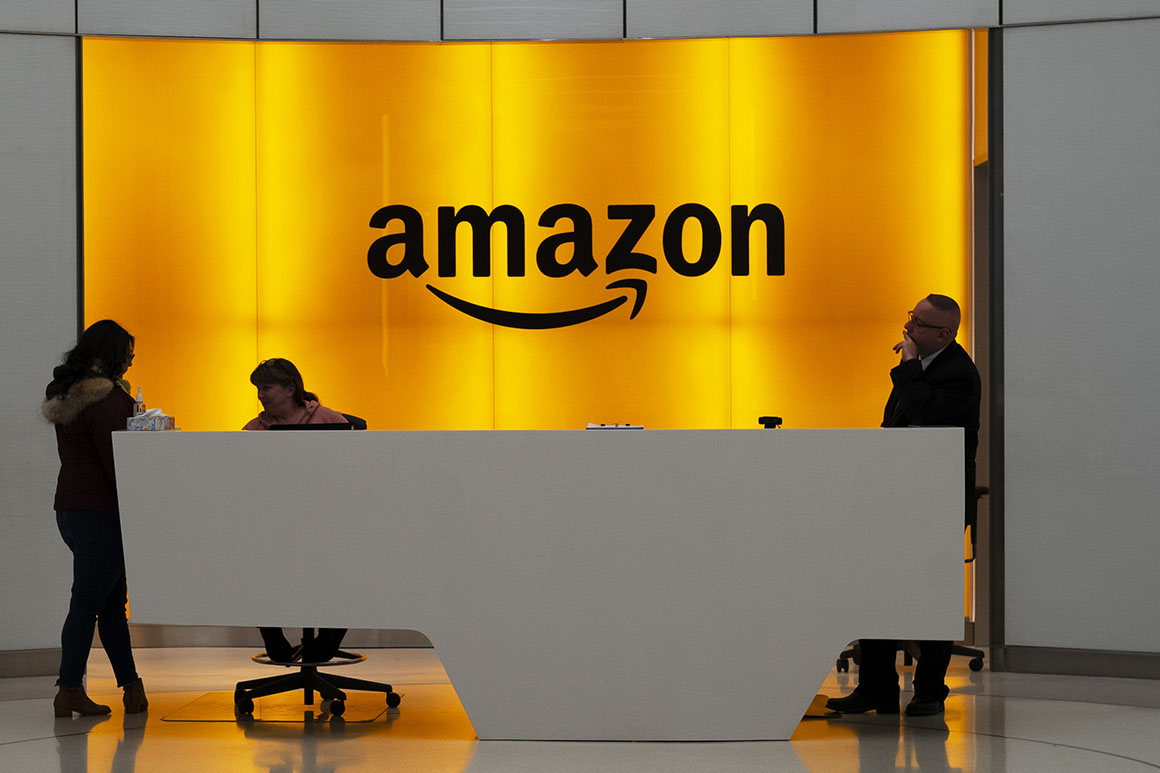
And speaking out against Google, Apple and Amazon so publicly and forcefully could risk reprisals from the firms that control much of the global digital marketplace.
„I feel that this is a big enough issue that people need to speak out. It’s important these issues come to the forefront,“ Spence said. „We have a responsibility to speak for those that can’t.”
In addition to Sonos, the lawmakers heard from executives at electronics firms PopSockets and Tile and the software company Basecamp, all of whom made some of the most explicit public competition complaints against the tech giants to date.
“They make rules about how the platform should operate, who should have access to permissions and exempt themselves from all those rules,” Kirsten Daru, vice president and general counsel at Tile, said about the Apple app ecosystem. “We need equal access and permissions. … We need rules applied consistently across the board to everyone in the ecosystem, including Apple.“
Friday’s hearing is the latest in the House antitrust subcommittee’s sweeping investigation of possible anti-competitive conduct in the digital marketplace, a probe that has zeroed in on the practices of Apple, Amazon, Facebook and Google.
At the session, subcommittee Chairman David Cicilline (D-R.I.) said major platforms have grown so powerful that the companies “effectively serve as private regulators” and are “increasingly using their gatekeeper power in abusive and coercive ways.”
Since taking over the gavel for the House antitrust panel last year, Cicilline has emerged as a leading congressional critic of Silicon Valley’s practices, and of the federal regulators tasked with overseeing them. Three Colorado lawmakers — Democratic Reps. Joe Neguse and Ed Perlmutter, and Republican Rep. Ken Buck — attended Friday.
As part of the committee’s investigation, Cicilline and other lawmakers for months have met privately with companies who believe their products have been unfairly stifled by larger competitors — charges that Google, Apple and Amazon largely deny.
Even so, big tech companies are facing U.S. probes into their competitive practices at the state, federal and congressional level.
Google is under investigation by the Justice Department and a coalition of state attorneys general for dominating the ad tech market, its dominance in search and allegations related to Android. The FTC is scrutinizing Amazon over allegations related to its Marketplace. Apple has so far escaped any known antitrust probe in the U.S., though European authorities are investigating Apple Pay as well as a complaint about the iPhone-maker by Spotify, which has complained about Apple’s 30 percent commission on sales through its App Store.
In an effort to address concerns about competitiveness, Cicilline and his subcommittee plan to unveil a set of bipartisan policy recommendations sometime early this year. They are expected to outline how federal antitrust standards could be changed to better police misconduct in the digital marketplace.
„Help us, Congress; you’re our only hope,“ said David Heinemeier Hansson, chief technology officer of Basecamp, who used the hearing to rail against Google, saying his company is essentially forced to buy advertising from the search giant to ensure it appears first in search rankings.
“If you search the internet, Google is it. No other search engine that matters has any market share at all,” he said. “Consumers are not finding what they are looking for. They are being presented with an ad.”
PopSockets, which makes cellphone holders and chargers, said it stopped selling products on Amazon after the online retail giant refused to let it sell through a preferred distributor and tried to force it to let Amazon set its prices.
“We never felt like we had a genuine partnership with Amazon,” said CEO David Barnett, calling Amazon’s behavior “bullying with a smile.”
The Sonos executive said Amazon and Google tried to beat the speaker-maker with their own speakers — which are cheaper because the giants price them below costs. Sonos sued Google this month for patent infringement.
The big tech companies have disputed or denied the allegations. Amazon and Google both denied that their smart speakers copied Sonos. Google also responded to Basecamp’s allegations, saying that it allows competitors to bid on trademarked terms, such as a company’s name, unless the trademark owner complains.
Amazon also said that PopSockets was a “valued retail vendor” and free to choose where it sold its products. Apple said it works with third-party app developers while seeking to protect user privacy.
Even though some of the witnesses urged legislators to take swift action to address inequities in the digital marketplace, others suggested that an overhaul of the nation’s antitrust statutes might not be the answer. It might instead require more stringent enforcement by regulators, said Spence of Sonos.
“I would think that this level of power with this few firms, we should have rules in place that allow the Congress to act or for there to be remedies that are put in place,” he said. “I just don’t see it happening today.”
But calls for sweeping overhauls of federal antitrust standards are likely to face pushback from moderate Republicans on Capitol Hill, who worry that changes could chill business.
“I hear the problem; I don’t hear the solution,” said Buck, the lone Republican in attendance at the hearing. “I’m concerned about the government interfering in the marketplace because it may ultimately interfere with your ability to produce the products in the free marketplace that you want to produce.”
Source: politico.com
See more here: news365.stream






